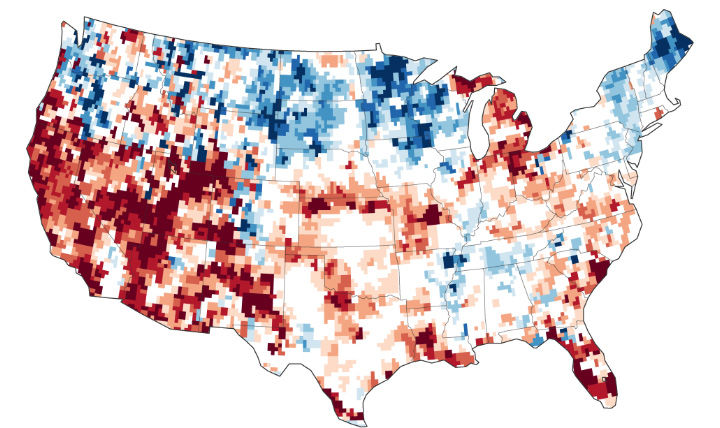Why Are Billionaires Buying Up America's Farmland?
- blackcoralinc2021

- Jul 12, 2022
- 3 min read

Bill Gates is now the largest private owner of U.S. farmland, but what is he really buying?
Over the past several years, the billionaire Bill Gates has amassed 242,000 acres of cropland across the country, almost half the size of Rhode Island. The news was met with concern from farmers , who wondered he could possibly want with so much land many suspect it has to do with water rights.
Ted Turner, the second-largest individual landowner in the U.S., has surprised some people by purchasing another ranch, putting his holdings in Nebraska past the half-million-acre mark. The 2 million acres of land he owns in the U.S. ranks Turner neck and neck with John Malone, Liberty Media's chairman. Turner was directly asked by news media if he ever planned to sell water rights on his Nebraska ranches, which sit on some of the thickest formations of groundwater from the Ogallala Aquifer. Turner said no.
"I've never sold any water rights to anyone and don't intend to," Turner told The World-Herald in an interview in 2008. Even the Wall Street Journal has commented on how Wall Street banks like Citigroup and multibillionaires are buying up water sources all over the world at unprecedented pace. Simultaneously, governments are moving fast to limit citizens’ ability to become water self-sufficient.
Familiar mega-banks and investing powerhouses such as Goldman Sachs, JP Morgan Chase, Citigroup, UBS, Deutsche Bank, Credit Suisse, Macquarie Bank, Barclays Bank, the Blackstone Group, Allianz, and HSBC Bank, among others, are consolidating their control over water. Wealthy tycoons such as T. Boone Pickens, former President George H.W. Bush and his family, Hong Kong’s Li Ka-shing, Philippines’ Manuel V. Pangilinan and other Filipino billionaires, and others are also buying thousands of acres of land with aquifers, lakes, water rights, water utilities, and shares in water engineering and technology companies all over the world. All the while they are doing this they are telling the public at large that climate change is under control and all you have to do is recycle.
Meanwhile big oil speeds up its pace to find new markets to sell its oil to like Africa and South America. Ironically Sub -Saharan Africa has the most secure supplies of fresh water. African governments are making progress and many are engaged in recognizing customary rights to water for millions of small farmers who have been sidelined or “criminalized” by permit systems created during the colonial era to keep the countries reliant on imports and dissuade from intra- African trades that would cut out Europe from the profits. Even states like California and Florida are increasingly reliant on desalinated seawater to support their agriculture and cities. Some states are even trying to make it illegal to collect rainwater to supply your farms and homes.
(See below map of Aquifers in USA)

We are faced with legislation that wants to create some kind of Bizarro world where a barrel of rainwater can't be tolerated but a city like Flint can have their water poisoned and everyone in city government get off Scott free! In fact governments are moving quickly to limit the average citizens’ ability to become water self-sufficient. In Oregon, the state criminalized the collection of rainwater in three ponds owned by a farmer Gary Harrington which were located on his private land, the courts convicting him on nine counts of criminal collection of rain and he spent 30 days in jail for his crime. What do they give for snowflake hoarding?
Let’s put this criminalization in perspective:
Billionaire T. Boone Pickens owned more water rights than any other person in America, he owned Ogallala Aquifer and he had the right to drain approximately 200,000 acre-feet or 65 billion gallons of water a year with no consequences. In fact there is no Federal law against rain water collection or harvesting as it is called.
Rainwater harvesting is the storage of rainwater, rather than allowing it to run off, you would reuse it for on-site purposes drinking ,gardening, bathing etc. Simply installing a three point filtration system in one's home makes it easy to utilize Earth's hydrological cycle. When people to collect rainwater on their own property it reduces the demand on water facilities and improves conservation efforts. In short it helps the ecosystem and supports access to water for all. In Massachusetts Rainwater harvesting is legal and encouraged. Texas and Virginia give tax incentives for it. But there are some states that have restrictions or require permits to collect rainwater.

If you are interested in Rainwater Filtration, Harvesting or Conservation here is a link: https://worldwaterreserve.com/rainwater-filtration-system/




Comments